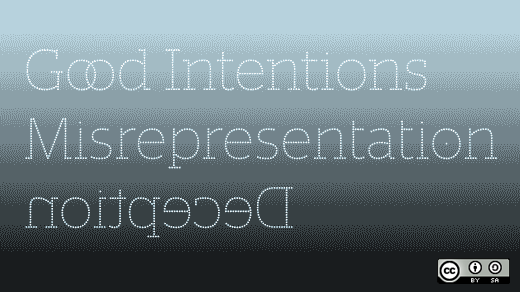Information is power. But like all power, there are those who want to keep it for themselves.—Aaron Swartz
I have been a PhD student for less than two years. On the other hand, for six years, I have been a member of the free culture movement, which emphasizes the importance of access to and openness of technology and information.
Recently, I’ve been frustrated... sad... angry. Just over a year ago, a friend and fellow member of the free culture community, Ilya Zhitomirskiy, committed suicide. He was 22. A few weeks ago, an acquaintance, a friend of many close friends, and—really—a role model, just one year older than myself and networked with many institutions and individuals I have come to work with and/or admire (such as MIT, the Berkman Center, the EFF, Creative Commons; frankly, there are too many individual people to list) committed suicide. Aaron Swartz was admired for his bravery to stand up for his ideals, and the work he put into the world demonstrated no less than exactly those ideals. I followed his actions with awe and complete understanding.
When I look at the goals that Aaron pursued, I feel disappointed in myself for not also working harder toward similar aspirations. But I want that to change. Though Aaron frequently called for more extreme forms of activism, such as through his Guerilla Open Access Manifesto, I want to begin with what is an easy solution that has been solvable for years, which I do not even think deserves to be called activism. It’s merely what should be.
So I have decided that I will further my ideals by refusing to restrict the knowledge I create in outdated publishing models that retain and maintain a detrimental status quo within the academic community. I know that Aaron detested the absurdity of contemporary academic establishments and norms; in many regards, I agree with his sentiments wholeheartedly.
But even though I still commit to furthering my career as a pursuer and producer of knowledge, I recognize that things just have to change already. We need to fix this.
Accessible by default
The easiest thing... is simply not volunteering our labor to lock academic writing away from the public.—Nick Montfort
While I’ve supported and campaigned for open access in the past as a member of Students for Free Culture, I can no longer support the outdated, profit-driven models of modern academic publishing companies. I feel it is finally time to stand up and challenge the status quo, in which academics send knowledge to journals whose sole purpose of existing is to disseminate that knowledge to others. By blocking access to and charging fees for that knowledge, I believe that journals have failed in the primary purpose for the education system as a whole: to teach and share knowledge with others.
There’s an inherent flaw in modern academia: scholars are expected to publish in "high ranking" journals, foundational compilations of academic articles that—over time—have become engrained in the institutional social fabric of knowledge production within the academy. They are, however, closed to the public. But these kinds of journals do nothing for someone like me, a young, digitally networked, curious researcher. Unlike scholars of the past, I no longer wait for journals to appear on my doorstep to gain access to the latest scholarship; the internet, search engines, and personal homepages are my distributors and discovery mechanisms.
It angers me that scholars think that the solution to this status quo is to post copies of their articles online. Some academics, in reality, must publish in closed journals and thus decide to free their own writing individually. But in my opinion, that is not enough. By continuing to publish in and thereby support closed journals, we continue to maintain and uphold an outdated mode of knowledge circulation. Scholars need to realize that the base act of publishing in a closed journal continues its existence: even if you make your own knowledge available, others’ may not be.
I’m no longer afraid of the threat that publishing in certain closed journals might affect my career. My future depends on my work being relevant and widely read. And I will never support nor desire an institution that would punish me for pursuing those goals.
I am boycotting locked-down journals and I'd like to ask other academics to do the same.—Danah Boyd
What I must do
I have come to the conclusion that my knowledge should and will be accessible. Therefore, I will only publish openly.
I will only publish in open access journals.
I will only review for open access publications.
I will only sign book and chapter contracts that share copies of the text online (whether licensed through Creative Commons or made available in some other, free form).
I will only attend conferences that make any related publications accessible for free.
I will also only contribute to open access publications that do not charge authors inordinate costs for publishing.
The academic community is only hurting itself, and its long term public support, by keeping its knowledge behind high subscription walls.—Andrew Carr
What you (and we) can do
Change begins when we as a community move forward together. However, absolute change can only come about with absolute decisions.
If you are a graduate student:
- Adopt the same stance: only publish in open access academic venues; refuse all others.
- Encourage your cohort, classmates, friends, colleagues, teachers, and advisors to do the same.
If you are a senior scholar:
- Help young scholars like me establish a variety of new and current open venues for publication.
- Refuse to review for closed journals; volunteer to review for open access publications.
- Cite scholarly works from open access venues when research is worthy of it.
- Recognize junior faculty’s efforts in the tenure process for pursuing open access ideals.
- Petition closed journals to shift their policies to open access.
- Help spread the word that closed publications are no longer acceptable.
Open Access benefits literally everyone, for the same reasons that research itself benefits literally everyone.—Peter Suber
The movement toward open access as a norm within academia has been and will likely be a slow and ongoing process, and many better people than myself have contributed to changing the status quo in substantial ways. But I feel that individual decisions like the one made on this page can contribute to that shift and ultimately change this situation. If you are ready to take the same step, I encourage you to promote your thoughts on your own webpage and spread the word. There’s no image to share, no petition to sign, no badge to display: at this critical and crucial point, there is only action.
Originally posted on Alex Leavitt's website. Reposted under Creative Commons.







6 Comments